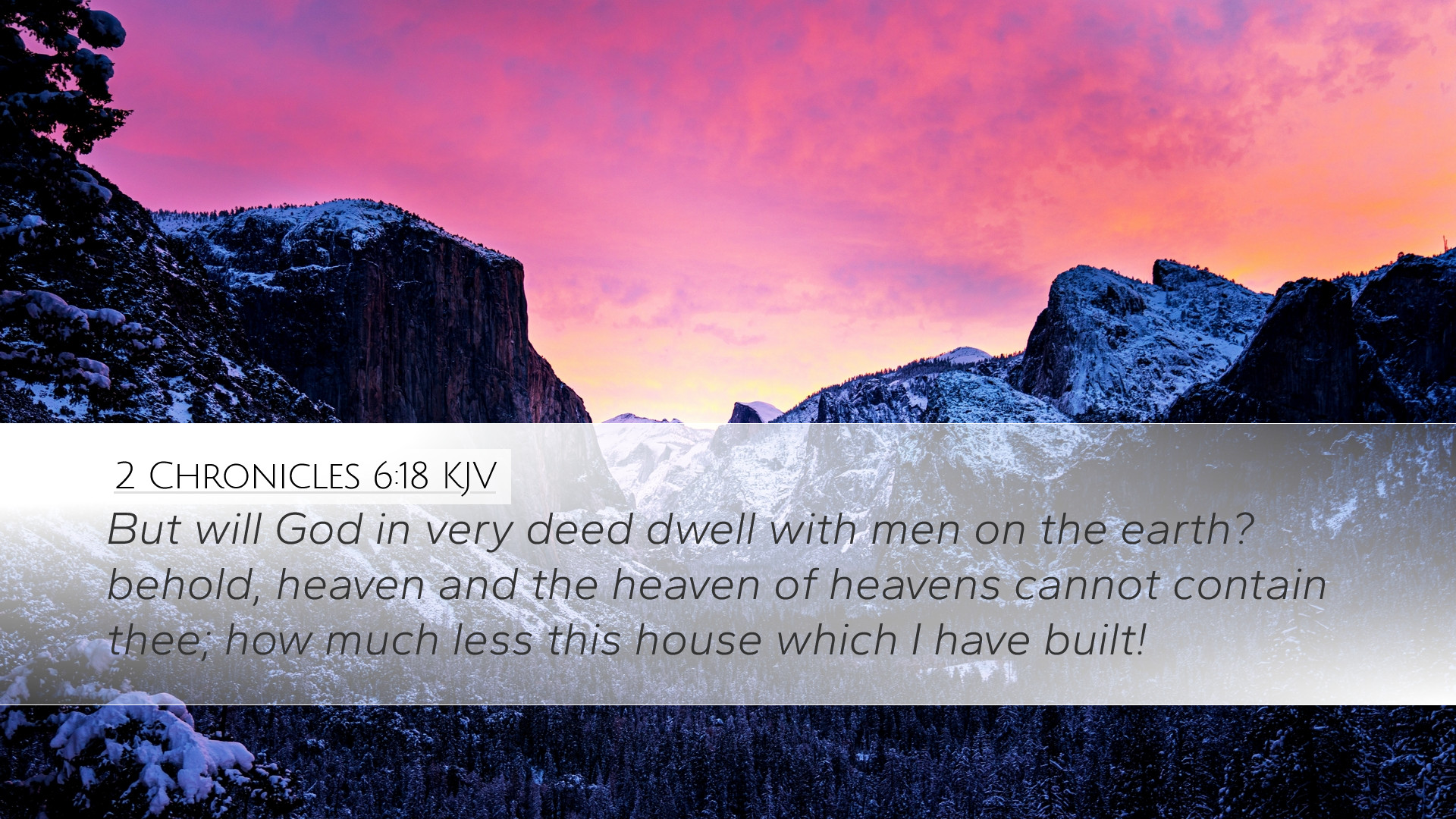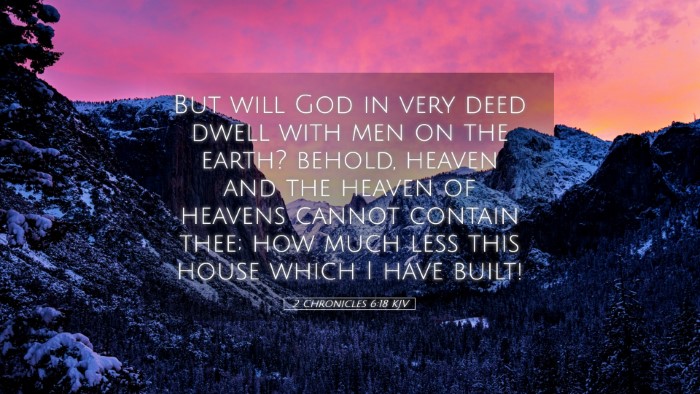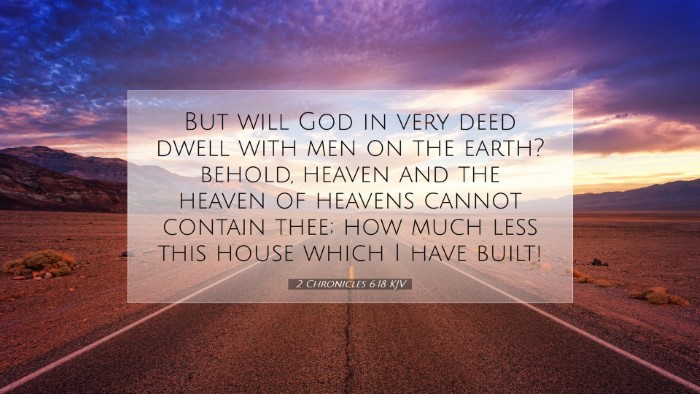Commentary on 2 Chronicles 6:18
Verse Text: "But will God in very deed dwell with men on the earth? behold, heaven and the heaven of heavens cannot contain thee; how much less this house which I have built!"
Introduction
This verse is part of King Solomon's prayer and dedication of the temple in Jerusalem, reflecting profound theological insights and acknowledging the majesty of God. It strikes at the heart of the relationship between the divine and the human, the transcendent and the imminent. Notable theologians such as Matthew Henry, Albert Barnes, and Adam Clarke provide rich commentaries that help to unpack the significance of this verse.
Theological Implications
- The Majesty of God: Solomon reflects on the vastness and grandeur of God. As Barnes notes, “the heavens cannot contain Him; thus, the temple cannot be a literal dwelling place.” This illustrates the infinite nature of God compared to human constructs.
- The Dilemma of God’s Presence: The rhetorical question posed by Solomon showcases a tension: how can the infinite God dwell among finite humanity? Clarke emphasizes that while God fills all creation, His presence comes in a unique way in the temple.
- The Concept of a Dwelling Place: Even though the temple cannot contain God, it serves as a sacred space where God’s presence is felt. Henry clarifies that this house represents a way for humanity to encounter the divine, which emphasizes God’s desire for relationship with His creation.
Historical Context
This verse occurs during the temple dedication, a significant moment for Israel. It reflects both completion and consecration. The temple was to be the center of worship and the focal point of Israel's relationship with God. Historical interpreters recognize that Solomon’s awareness of God’s immenseness highlights the importance of humility in worship.
Commentary Insights
- Matthew Henry: Henry posits that Solomon’s address to God acknowledges human limitations. He notes, “The most magnificent temple cannot confine the Almighty,” urging believers to understand that God’s presence cannot be limited by physical structures.
- Albert Barnes: Barnes delves into the implications of God’s omnipotence and omnipresence, stating, “God dwells with men not by the material temple but through His Spirit.” This interpretation encourages a spiritual understanding of God's presence beyond physical limitations.
- Adam Clarke: Clarke emphasizes the significance of God's willingness to engage with humanity. “Though God is not contained in temples made with hands, He condescends to communicate with us through such means.” His comments encourage reflection on how God interacts with humanity at various levels.
Applications for Believers
The insights drawn from this verse are not just theological; they extend into practical applications for believers today:
- Understanding of Worship: Recognizing that worship is not confined to a specific location enhances the experience of God’s presence in daily life.
- Humility: The enormity of God's presence invites believers to approach Him with reverence and awe, acknowledging His greatness.
- Openness to Divine Presence: Engaging with God requires an open heart to experience His presence in various aspects of life beyond the church.
Conclusion
2 Chronicles 6:18 serves as a profound reminder of the relationship between the Almighty God and humanity. The insights of Matthew Henry, Albert Barnes, and Adam Clarke illuminate the verse, revealing its depth and implications. This scripture invites ongoing reflection on God's presence, worship, and the intrinsic value of building a relationship with the divine.


